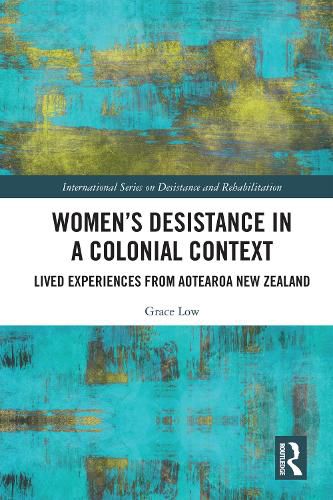Readings Newsletter
Become a Readings Member to make your shopping experience even easier.
Sign in or sign up for free!
You’re not far away from qualifying for FREE standard shipping within Australia
You’ve qualified for FREE standard shipping within Australia
The cart is loading…






This book adds to global knowledge of pathways out of crime (desistance) by exploring the desistance narratives of 15 women with histories of imprisonment in Aotearoa New Zealand (10 of whom identify as Maori, New Zealand's Indigenous population). By voicing these women's experiences, the book adds to desistance research by moving beyond the mainstream Western nations which dominate desistance literature (such as the United States and UK), to explore how historical and structural influences - including Aotearoa New Zealand's colonial history - shape women's offending and desistance trajectories.
This book explores the women's journeys in and out of crime, including the various socio-structural constraints which could impede the women's desistance efforts, especially for Maori women, who are overrepresented in Aotearoa New Zealand's prison population. This book explores the influence of the women's personal relationships (with families of origin/whanau, intimate partners, friends/associates, and children) and their institutional interactions (i.e., their experiences of employment, drug/alcohol addiction treatment and other forms of rehabilitative support). The book also takes a close look at the role of housing - and the more subjective notion of 'home' - in the women's offending and desistance journeys. It makes recommendations for policy and practice to support women leaving prison in Aotearoa New Zealand (and internationally) with an emphasis on the importance of wider community support.
This book makes an original contribution to desistance literature by bringing greater conceptual clarity to gendered aspects of the desistance process and how these manifest in a colonial setting. It will appeal to students and scholars of criminology, desistance, gender studies, recovery from addiction, and to practitioners and policy makers in these fields.
$9.00 standard shipping within Australia
FREE standard shipping within Australia for orders over $100.00
Express & International shipping calculated at checkout
This book adds to global knowledge of pathways out of crime (desistance) by exploring the desistance narratives of 15 women with histories of imprisonment in Aotearoa New Zealand (10 of whom identify as Maori, New Zealand's Indigenous population). By voicing these women's experiences, the book adds to desistance research by moving beyond the mainstream Western nations which dominate desistance literature (such as the United States and UK), to explore how historical and structural influences - including Aotearoa New Zealand's colonial history - shape women's offending and desistance trajectories.
This book explores the women's journeys in and out of crime, including the various socio-structural constraints which could impede the women's desistance efforts, especially for Maori women, who are overrepresented in Aotearoa New Zealand's prison population. This book explores the influence of the women's personal relationships (with families of origin/whanau, intimate partners, friends/associates, and children) and their institutional interactions (i.e., their experiences of employment, drug/alcohol addiction treatment and other forms of rehabilitative support). The book also takes a close look at the role of housing - and the more subjective notion of 'home' - in the women's offending and desistance journeys. It makes recommendations for policy and practice to support women leaving prison in Aotearoa New Zealand (and internationally) with an emphasis on the importance of wider community support.
This book makes an original contribution to desistance literature by bringing greater conceptual clarity to gendered aspects of the desistance process and how these manifest in a colonial setting. It will appeal to students and scholars of criminology, desistance, gender studies, recovery from addiction, and to practitioners and policy makers in these fields.